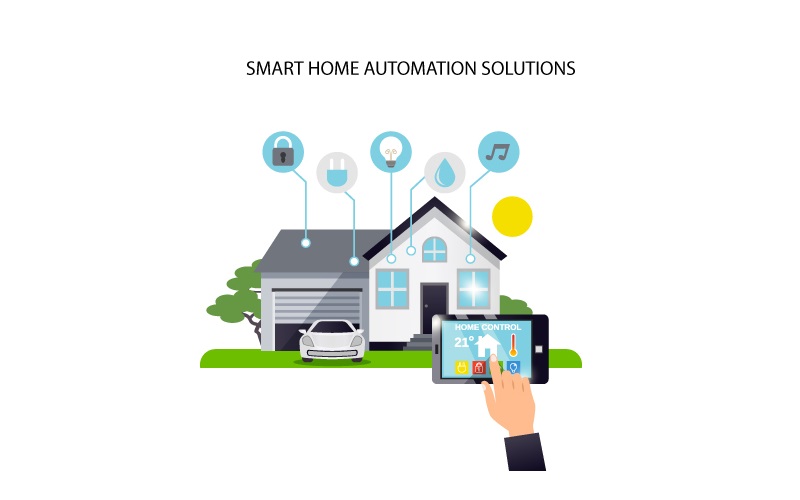Unlocking The Power Of IoT Batch Jobs: Revolutionizing Data Processing
Imagine a world where machines talk to each other, share data seamlessly, and make decisions without human intervention. This is not science fiction—this is the Internet of Things (IoT) in action. In this interconnected universe, IoT batch jobs play a crucial role in managing and processing vast amounts of data efficiently. If you're curious about how IoT batch jobs work and why they matter, you're in the right place.
IoT batch jobs are like the unsung heroes of the tech world. They quietly process data in the background, ensuring that everything runs smoothly. Think of them as the backstage crew at a concert—they might not get all the applause, but without them, the show wouldn't go on. In this article, we'll dive deep into what IoT batch jobs are, why they're important, and how they can transform industries.
So, whether you're a tech enthusiast, a business owner, or just someone curious about the latest trends in technology, this article is for you. Let's explore the fascinating world of IoT batch jobs together and discover how they can revolutionize the way we handle data.
Read also:Royal Excitement Builds Kate Middletons Third Baby On The Way
Before we dive into the nitty-gritty, here's a quick overview of what we'll cover:
- What are IoT batch jobs?
- Why are they important?
- How do they work?
- Applications and use cases
- Challenges and solutions
- Future trends
What Are IoT Batch Jobs?
Alright, let's get down to business. IoT batch jobs are essentially tasks that process large volumes of data in a single operation. Think of it like baking cookies—instead of making one cookie at a time, you mix up a big batch and bake them all at once. This approach is super efficient when dealing with massive datasets that need to be processed in chunks.
IoT batch jobs are particularly useful in scenarios where real-time processing isn't critical. For example, if you're analyzing sensor data from a factory floor to detect patterns over time, you don't necessarily need instant results. Instead, you can run a batch job overnight to crunch the numbers and generate insights by morning.
In a nutshell, IoT batch jobs help organizations manage and analyze data more effectively, saving time and resources in the process.
Key Characteristics of IoT Batch Jobs
Now that we know what IoT batch jobs are, let's talk about their key characteristics. These jobs are designed to handle large datasets, which means they need to be robust, scalable, and efficient. Here are some of the standout features:
- Scalability: IoT batch jobs can handle data of any size, from small batches to massive datasets.
- Efficiency: By processing data in batches, these jobs minimize resource usage and maximize output.
- Reliability: Once set up, IoT batch jobs run consistently, ensuring that data is processed accurately every time.
Why Are IoT Batch Jobs Important?
Here's the deal—IoT devices generate a ton of data, and without a way to manage and analyze it, all that data is just noise. IoT batch jobs are the key to turning that noise into valuable insights. They help organizations make sense of the data they collect, enabling them to make better decisions and improve their operations.
Read also:Celebrity Chef Katie Lee Says I Do To Ryan Biegel In Paris
For instance, in the manufacturing industry, IoT batch jobs can analyze production data to identify bottlenecks and inefficiencies. This allows companies to optimize their processes, reduce costs, and increase productivity. In healthcare, IoT batch jobs can process patient data to detect trends and predict potential health issues before they become serious.
IoT batch jobs are essential because they bridge the gap between raw data and actionable insights, making them a vital component of any IoT strategy.
How IoT Batch Jobs Benefit Businesses
Let's break it down—IoT batch jobs offer several benefits to businesses:
- Cost Savings: By automating data processing, companies can reduce the need for manual intervention, cutting down on labor costs.
- Improved Decision-Making: With accurate and timely insights, businesses can make better-informed decisions.
- Enhanced Efficiency: IoT batch jobs streamline data processing, allowing companies to focus on more strategic initiatives.
How Do IoT Batch Jobs Work?
Alright, let's get technical for a moment. IoT batch jobs typically involve three main steps: data collection, processing, and analysis. Here's how it works:
- Data Collection: IoT devices collect data from various sources, such as sensors, cameras, and other connected devices.
- Data Processing: Once the data is collected, it's sent to a central processing unit, where it's cleaned, organized, and prepared for analysis.
- Data Analysis: Finally, the processed data is analyzed to extract meaningful insights, which can then be used to drive business decisions.
Each step is crucial to the success of the entire process. Without proper data collection, processing, and analysis, the insights generated would be incomplete or inaccurate.
Tools and Technologies Used in IoT Batch Jobs
There are several tools and technologies that power IoT batch jobs. Some of the most popular ones include:
- Hadoop: A framework that allows for distributed storage and processing of large datasets.
- Apache Spark: A fast and general-purpose cluster-computing system that's great for batch processing.
- AWS IoT: A cloud platform that provides tools for managing IoT devices and processing their data.
Applications and Use Cases of IoT Batch Jobs
IoT batch jobs have a wide range of applications across various industries. Let's take a look at some of the most common use cases:
1. Manufacturing
In manufacturing, IoT batch jobs can analyze production data to identify inefficiencies and optimize processes. For example, a company might use IoT batch jobs to monitor machine performance and predict maintenance needs, reducing downtime and increasing productivity.
2. Healthcare
In healthcare, IoT batch jobs can process patient data to detect patterns and predict potential health issues. This allows doctors to intervene early, improving patient outcomes and reducing healthcare costs.
3. Agriculture
In agriculture, IoT batch jobs can analyze data from soil sensors and weather stations to optimize crop yields. By understanding soil conditions and weather patterns, farmers can make more informed decisions about planting, watering, and harvesting.
Challenges and Solutions
As with any technology, IoT batch jobs come with their own set of challenges. Let's explore some of the most common ones and how they can be addressed:
1. Data Security
With so much data being processed, security is a major concern. To address this, companies can implement robust encryption protocols and access controls to protect sensitive information.
2. Scalability
As data volumes grow, scalability becomes a challenge. To tackle this, organizations can use cloud-based solutions that offer virtually unlimited storage and processing power.
3. Complexity
Setting up and managing IoT batch jobs can be complex, especially for organizations without dedicated IT teams. To simplify the process, companies can leverage pre-built solutions and managed services that handle the heavy lifting for them.
Future Trends in IoT Batch Jobs
So, what's next for IoT batch jobs? Here are a few trends to watch:
- Edge Computing: As more devices become connected, edge computing will play a bigger role in processing data closer to the source, reducing latency and improving efficiency.
- AI Integration: Artificial intelligence will increasingly be integrated into IoT batch jobs, enabling more advanced analytics and insights.
- Sustainability: With growing concerns about the environmental impact of data processing, companies will focus on making IoT batch jobs more energy-efficient and sustainable.
Conclusion
In conclusion, IoT batch jobs are a game-changer in the world of data processing. They help organizations manage and analyze vast amounts of data efficiently, enabling them to make better decisions and improve their operations. From manufacturing to healthcare to agriculture, the applications of IoT batch jobs are virtually limitless.
So, if you're looking to harness the power of IoT and unlock the value of your data, consider incorporating IoT batch jobs into your strategy. And don't forget to share your thoughts and experiences in the comments below. Who knows? You might just inspire someone else to explore the possibilities of IoT batch jobs!
Table of Contents
Article Recommendations


